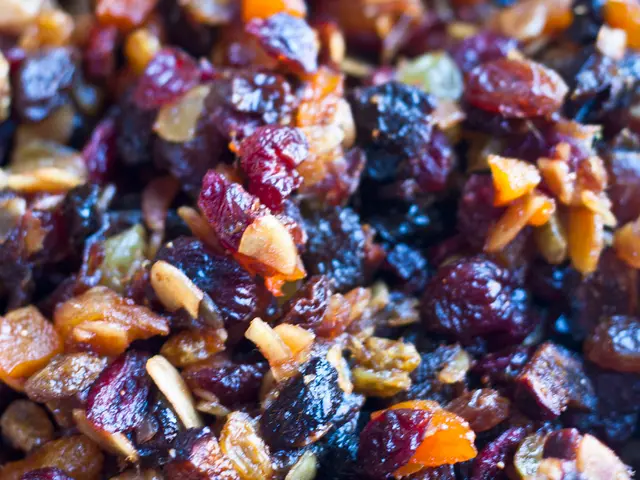Possible Transmission of Avian Flu Via Dairy Products?
Chilling Out About the Milk in Your Fridge: Is it Safe from Bird Flu? Let's bust a myth or two about your morning milk. With cases of bird flu on the rise, it's natural for you to worry about your liquid breakfast, right? Well, let's talk to infectious disease specialist Lyssette Cardona, MD, and put your mind at ease.
Is that Milk Safe for Me?
If you're reaching for a glass of pasteurized milk instead of a carton of raw milk, breathe a sigh of relief. The pasteurization process—which cooks raw milk for a specific temperature and time—kills not just bacteria, but also viruses such as bird flu. According to the Food and Drug Administration (FDA), this process is effective in quickly and completely inactivating bird flu in milk, making your everyday glass of milk safe to drink.
Dr. Cardona concurs: "Pasteurization is the key because it kills the bird flu virus." Keep in mind that most commercially sold milk is pasteurized, following guidelines set by the FDA's Grade A Milk Safety Program. The agency tested pasteurized milk products in 2024 and found no evidence of bird flu, giving you more reasons to enjoy your milk guilt-free.
What About Raw Milk?
The bad news? Bird flu has been found in raw milk samples from infected herds. If you choose to sip raw milk instead, there's a risk you could fall ill. Exposure to infected cattle and milk has led to most bird flu cases reported so far in people in the United States, according to the Centers for Disease Control and Prevention (CDC).
While studies on the exact transmission of bird flu through raw milk in humans are limited, raw milk is notoriously high-risk due to the potential of numerous foodborne illnesses, including E. coli, Salmonella, Listeria, and Brucellosis. Dr. Cardona warns that the potential risks of raw milk "go beyond bird flu."
So, is raw milk getting the test it deserves? The U.S. Department of Agriculture launched the National Milk Testing Strategy at the end of 2024 to track infections in herds, enhancing understanding of the virus and hopefully curbing its spread.
Who's at Risk from Bird Flu?
From a global perspective, the general public risk of bird flu remains low. However, for those who work closely with infected animals in settings such as farms or animal markets, the risk increases. Although human infection with bird flu viruses has been labeled "limited and sporadic," the World Health Organization has documented nearly a thousand cases—almost half of which led to death.
To minimize your risk, Dr. Cardona offers these tips:
- Stick with pasteurized milk and pasteurized milk products.
- Cook your eggs, poultry, and beef properly before eating.
- Wash your hands thoroughly after preparing meals with eggs or raw meat.
- Avoid contact with dead birds or animals.
- Wash your hands regularly if you're around animals in settings such as a farm or animal market.
Rest assured, bird flu is currently "very low risk" to the general public. As always, it pays to be careful.
- The pasteurization process, which is commonly used in commercially sold milk, effectively kill viruses like bird flu, making your everyday glass of pasteurized milk safe to drink.
- Raw milk, however, has been found to contain bird flu in samples from infected herds, posing a potential risk to those who consume it.
- While the general public risk of bird flu remains low, individuals who work closely with infected animals, such as those in farms or animal markets, face a higher risk.
- To minimize the risk of bird flu, the Centers for Disease Control and Prevention (CDC) advises avoiding raw milk, cooking eggs, poultry, and beef properly, washing hands after preparing meals with raw meat or eggs, and avoiding contact with dead birds or animals.








